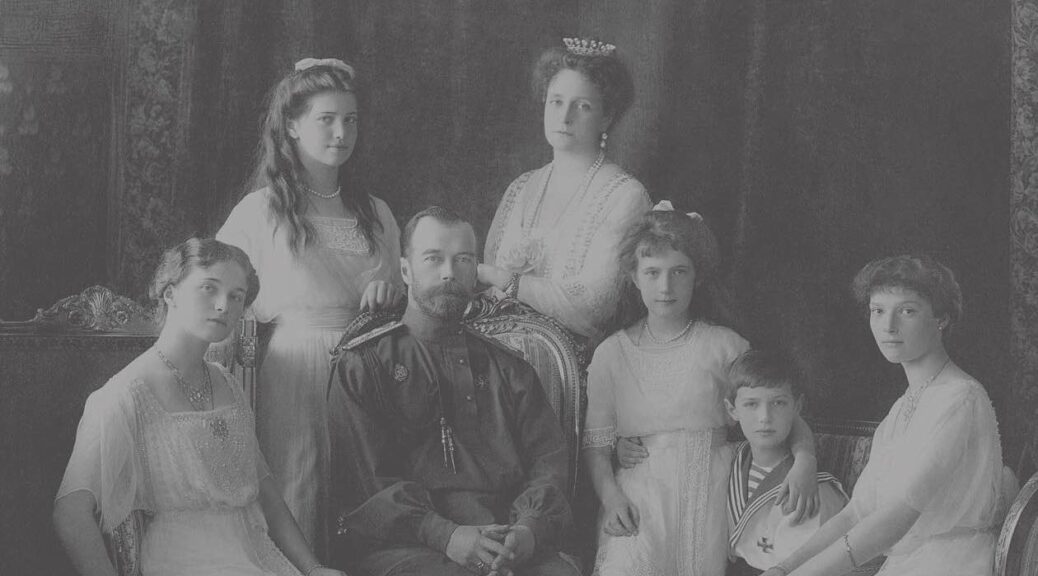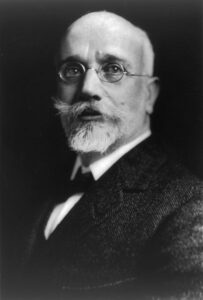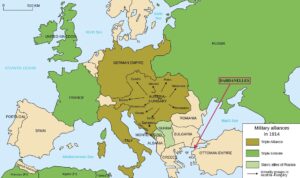
Russians and Greeks: “Falling Below the Level of Events”
“Russians and Greeks” is excerpted from “The Russian and Greek Impasse,” written for the Hillsdale College Churchill Project. For the original article, click here. To subscribe to weekly articles from Hillsdale-Churchill, click here, scroll to bottom, and enter your email in the box “Stay in touch with us.” We never spam you and your identity remains a riddle wrapped in a mystery inside an enigma.
Q: Russians and Greeks
I’m studying Churchill’s The World Crisis, Volume 2, 1915, describing the naval assault on the Dardanelles. It occurs in Chapter 9: “The Fall of the Outer Forts and the Second Greek Offer.”
After the successful naval bombardment of the Turkish outer forts in February 1915, Churchill felt close to gaining the support of the Greeks. His plans fell apart when “the Russian Government would not at any price accept the cooperation of Greece in the Constantinople (today’s Istanbul) expedition”*
What problem did Czar Nicholas II have with Greece? What did the Russians see as a threat, which caused them to take this position? —J.D.
*Quotations are from Winston S. Churchill, The World Crisis, vol. 2, 1915 (London: Thornton Butterworth, 1923), and the modern paperback (London: Bloomsbury Academic, 2015), pages 201-04.
A: “Quos Deus vult perdere…”
You cite a poignant episode in The World Crisis. In early 1915, the hitherto neutral Greeks became interested in joining the Triple Entente against Germany, Austria-Hungary and Turkey. Churchill’s actions demonstrate two of his lifelong goals: coalitions and collective security.
Czar Nicholas’ refusal of aid from the Greeks when victory seemed possible poses an example of what Winston Churchill frequently described as “falling below the level of events.” WSC did not conceal his distress that a supreme opportunity was thrown away:
The time-honoured quotation one learnt as a schoolboy, “Quos Deus vult perdere prius dementat” [Those whom God wills to destroy He first makes mad], resounded in all its deep significance…. This was, indeed, the kind of situation for which such terrible sentences had been framed—perhaps it was for this very situation that this sentence had been prophetically reserved.
Military alliances in 1914. Italy (part of the 1882 Triple Alliance) ultimately joined the war against the Central Powers in May 1915. (Map by Historicair, Futeflute and Bibi Saint-Pol, Creative Commons)
“Before the end of April”
Greek Prime Minister Eleftherios Venizelos, while sympathetic to France and Britain, had refused to join them in the war until the naval assault on the Dardanelles in early 1915. This produced what Churchill calls “an immediate change.” Venizelos now proposed sending three Greek divisions to invade Turkey on the Gallipoli Peninsula.
Churchill’s fertile imagination conjured up a stunning vision:
There was surely a reasonable prospect that with all these forces playing their respective parts in a general scheme, the Gallipoli Peninsula could even now have been seized and Constantinople taken before the end of April….
One must pause, and with the tragic knowledge of after days dwell upon this astounding situation which had been produced swiftly, easily, surely, by a comparatively small naval enterprise directed at a vital nerve-centre of the world.
The Czar’s veto
Two days later “a terrible fatality intervened.” Russian Foreign Minister Sergey Saznonov reported that Czar Nicholas II “could not in any circumstances consent to Greek cooperation in the Dardanelles.”
Russia, which had long coveted Constantinople, had welcomed the Dardanelles operation. But Russia saw Greece as a rival for the spoils. Suppose the Greeks joined in occupying the Turkish metropolis? The Russians would never allow Greek King Constantine to appear in Constantinople.
Desperately, Churchill and Foreign Minister Sir Edward Grey sought to save the opportunity. Suppose the Greeks were limited to one division? Suppose Constantine promised not to go to Constantinople? Affronted, the King “relapsed into his previous attitude of hostile reserve.”
Meanwhile in St. Petersburg, Churchill wrote, Czar Nicholas remained adamant:
Russia—failing, reeling backward under the German hammer, with her munitions running short, cut off from her allies—Russia was the Power which ruptured irretrievably this brilliant and decisive combination….
Was there no finger to write upon the wall, was there no ancestral spirit to conjure up before this unfortunate Prince, the downfall of his House, the ruin of his people—the bloody cellar of Ekaterinburg?
(Churchill refers to the murder of the Czar and his family by the Bolsheviks in Ekaterinburg on 17 July 1918.)
Alliances denied
The refusal of Nicholas II to see the larger picture and make the necessary compromises astonished Churchill. Always a proponent of collective security, he could not believe the Czar would throw away such a glittering prospect. Churchill believed even more was at stake. He was sure that victory over Turkey could bring Romania and Bulgaria into a “Balkan Front” against the Germans.
Once the Dardanelles fleet turned back on March 18th, and after the failure to take Gallipoli in succeeding months, the Bulgars weighed their options. In October Bulgaria joined the Central Powers and invaded Serbia. (The term “Prussians of the Balkans,” as Churchill famously labeled the Serbs, was originally applied—disparagingly—to the Bulgarians by Russian Chancellor Prince Lobanov-Rostovsky in 1903.)

Bulgaria’s actions finally brought the Greeks into the Entente, but never with full-fledged zeal. Constantine’s royalists continued to favor Germany, and he and Venizelos sparred, alternately in and out of power, until the King’s death in 1923.
Churchill’s lament
The Greek and Russian imbroglio flew against all Churchill’s instincts to build coalitions. On 6 March 1915—with Dardanelles prospects still promising—he drafted a letter to Sir Edward Grey:
I beseech you at this crisis not to make a mistake in falling below the level of events. Half-hearted measures will ruin all, and a million men will die through the prolongation of the war. You must be bold and violent. You have a right to be. Our fleet is forcing the Dardanelles. No armies can reach Constantinople but those which we invite, yet we seek nothing here but the victory of the common cause.
Tell the Russians that we will meet them in a generous and sympathetic spirit about Constantinople…. If Russia prevents Greece helping, I will do my utmost to oppose her having Constantinople. She is a broken power but for our aid, and has no resource open but to turn traitor—and this she cannot do. If you don’t back up this Greece—the Greece of Venizelos—you will have another which will cleave to Germany.
“Mortal folly done and said”
Churchill decided to sleep on his draft. It proved a wise decision. Morning bought a “laconic telegram” from Athens: “The King having refused to agree to M. Venizelos’ proposals, the Cabinet have resigned.” Churchill’s most powerful Greek ally was temporarily out of the picture.
Churchill published his letter in The World Crisis—“not in any reproach of Sir Edward Grey or the Foreign Office. They felt as we did. They did all in their power. But I print it because it registers a terrible moment in the long struggle to save Russia from her foes and from herself.”
“Mortal folly done and said,” Churchill frequently quoted Housman— “And the lovely way that led To the slime pit and the mire And the everlasting fire.”
Thank-you for your question. It is an example of the myopia of nations and leaders who cannot see the way to their own salvation through concerted action. And it is not so unfamiliar today, as we are often reminded on the evening news. It makes one wonder—as Churchill did—what might happen “if God wearied of mankind.”
Related reading
“Dardanelles Straits, 1915: ‘Success has a Thousand Fathers,” 2024.
“Gallipoli Peninsula, 1915: “Failure is an Orphan,” 2024.
“Dardanelles-Gallipoli Centenary,” 2015.
“Dardanelles Then, Afghanistan Now: Apples and Oranges,” 2009.
“Lenin as Plague Bacillus, Churchill as Munitions Minister,” 2024.







